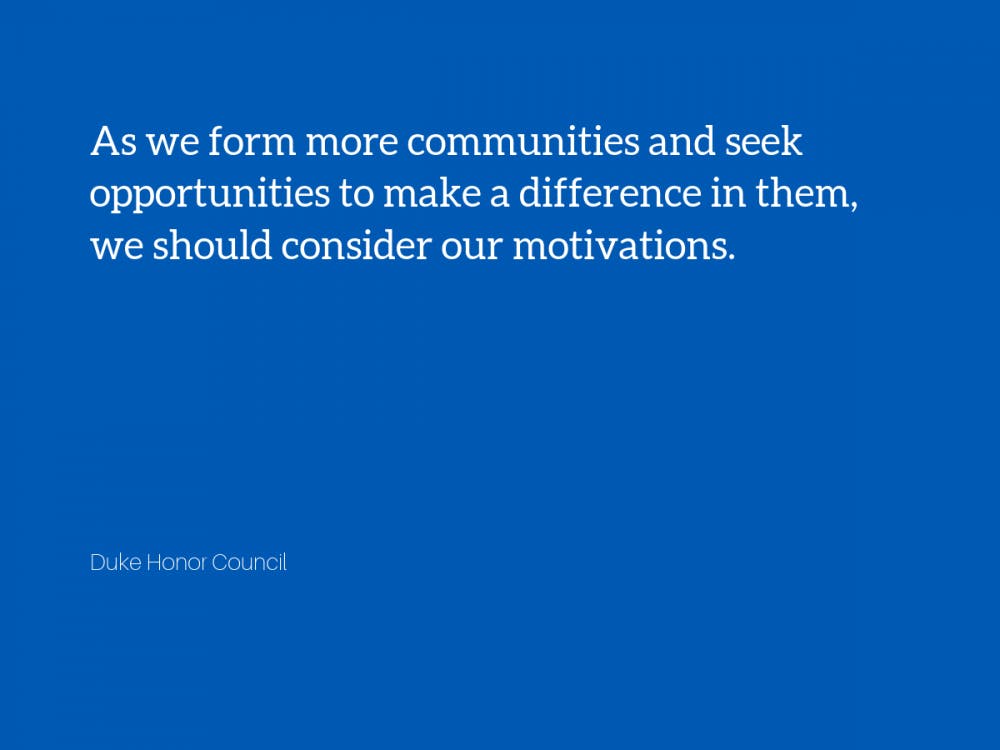Civic Engagement is defined as making a difference in the civic life of our communities. The first form of civic engagement we usually participate in and the one most associated with college students is community service. Many high schools and scholarship programs require some number of community service hours and on a resume or job application, community service hours are usually a good addition. For most, these are the motivations for becoming involved in the community.
Volunteering then becomes subject to the discussion of weighing impact vs. intent. If one person’s intention for volunteering in their community is to boost their resume and another’s is to improve the livelihood of those they are helping, but they do the same amount and quality of work, is their intention relevant? In the short-term, I would argue that it is not relevant; the impact of their contributions is the same and no matter what serves as a motivator they are making a difference.
However, when we consider the broader term civic engagement and the many other ways to make a difference in the civic lives of those in our communities, our motivations begin to matter. Volunteerism with the right motives and considerations can be the road to other forms of engagement, like political activism and environmentalism. My exploration of this topic was prompted by a quote by Rev. Martin Luther King Jr. that I regularly see in the Mary Lou Williams Center for Black Culture: “Philanthropy is commendable, but it must not cause the philanthropist to overlook the circumstances of economic injustice which make philanthropy necessary.” In this same vein, volunteerism regardless of our motivations is essential to promoting the quality of life in our communities, but if we remain content with the idea that these problems will continue to persist and that this is all we can do to help, we may never become more engaged in our communities.
Certain intentions encourage further involvement more than others. Those motivations rooted in our desire for self-gain will most likely not lead to any further commitments to civic engagement, whereas genuine care and concern likely will.
We are all members of a variety of communities: the Duke Community, the Durham community, the Global Community and so many more. The considerations and appropriate level of engagement in these communities are also various. Volunteerism is an important form of civic engagement and the argument could be made that without making those direct contributions, we cannot truly understand the issues that we have to strive toward fixing.
As we form more communities and seek opportunities to make a difference in them, we should consider our motivations. Even with the most selfish motives, we can impact our communities positively, but if we strive to establish motivation rooted in true understanding and genuine desire for improvement we can unlock our potential to become even more engaged and to address the systems that underlie the issues.
This column was written by Kelis Johnson, a Trinity sophomore. She is the Public Relations Chair of Duke University Honor Council.
Get The Chronicle straight to your inbox
Signup for our weekly newsletter. Cancel at any time.

